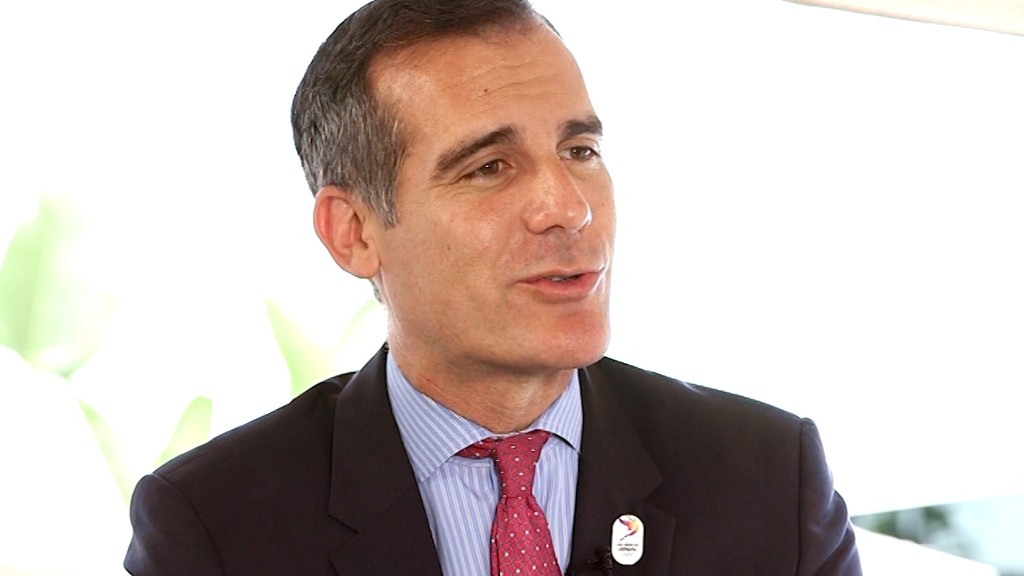
The gig economy is growing at an exponential pace. But it's still really, really tiny.
That's according to a new working paper by Alan Krueger, economist at Princeton University who served as Chairman on the White House Council of Economic Advisers between 2011 and 2013.
"It has grown remarkably rapidly," Krueger said earlier this week at the Milken Global Conference in Los Angeles. But "currently it's small."
How small? Only 0.5% of the total U.S. workforce relies on "online intermediaries" like Uber and Taskrabbit for employment, according to Krueger's working paper, which was updated last week. With roughly 159 million Americans in the workforce, that means currently only about 800,000 people work in the gig economy.
Related: Uber will pay up to $100 million to settle suits
Krueger's work and others' research come at a time when there's increasing focus and questions about the gig economy. On one hand, it's booming across the U.S. and world, but on the other, platforms like Uber and Airbnb face a growing wave of legal issues and protests.
The foggy definition of a "gig worker" is also raising questions about workers' rights -- are they employees or contract workers? Democratic frontrunner Hillary Clinton and other leaders have been talking about this issue.
Between 2012 and 2015, the monthly participation rate in the gig economy increased tenfold, according to a report published in February by Diana Farrell and Fiona Greig of the JPMorgan Chase Institute.
They found that a typical worker in an "online labor platform" like Taskrabbit makes about $2,500 per month, less than the average monthly income in the U.S., which is about $3,500, according to Labor Department data.
TaskRabbit CEO Stacy Brown-Philpot says workers on her platform make an average of $35 an hour, several times the federal minimum wage of $7.25 an hour.
Related: Uber drivers: Welcome to America's job market
"We're really creating work for everyday people," Brown-Philpot said on the same panel at Milken.
TaskRabbit's wage rules hit the nerve of what Krueger calls the "gray area" for gig workers. TaskRabbit lets workers on its platform charge whatever rate they want. But like regular employers, TaskRabbit does background checks and meets with prospective users. It could also bar a user from the platform -- akin to being fired from a job. So Taskers are a bit employee, a bit contractor.
"It is a gray area," Brown-Philpot conceded.
Uber has a similar problem. Uber decides the cost of the ride but workers set their own hours. Two weeks ago, Uber settled two lawsuits brought against them by drivers who claimed that they were employes and were misclassified as contract workers. Uber agreed to pay up to $100 million collectively to 385,000 drivers but the drivers will remain contract workers.
"Our legal system is not prepared for a gray area," Krueger said Wednesday.
And U.S. officials essentially admitted that. In December, the Labor Department hosted a forum called "The Future of Work" to better understand the gig economy. Then in January, Labor Secretary Tom Perez announced that gig workers would be included in the official jobs figures, which will be "rerun" with new counting methods by May 2017.


